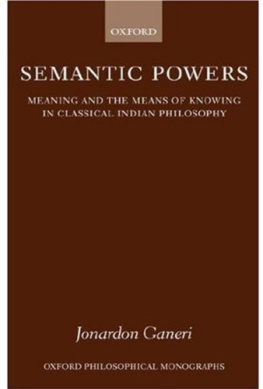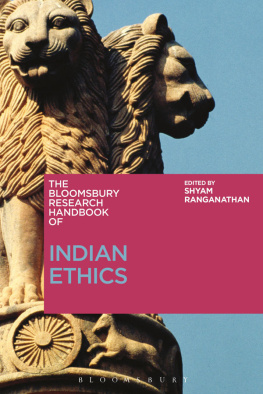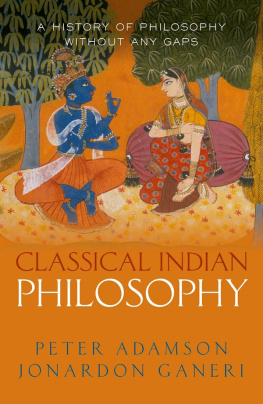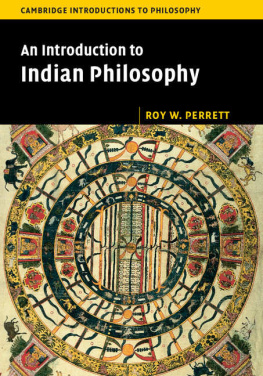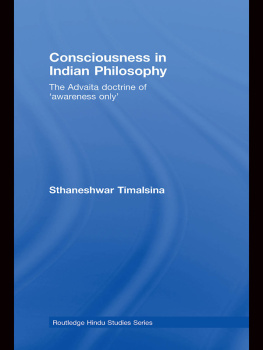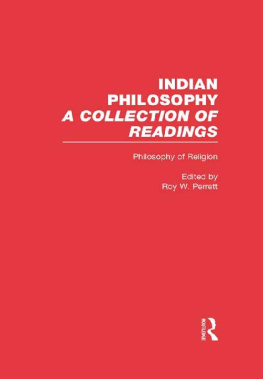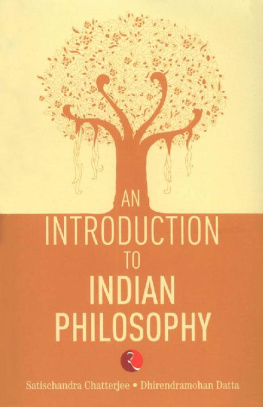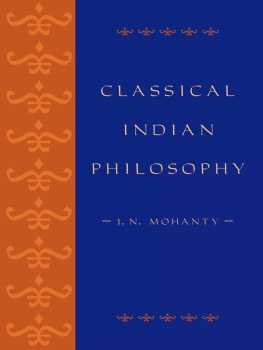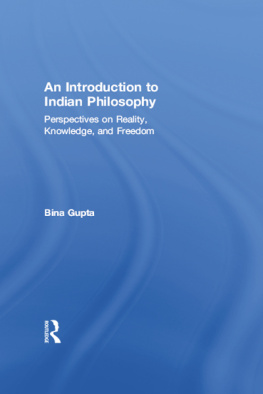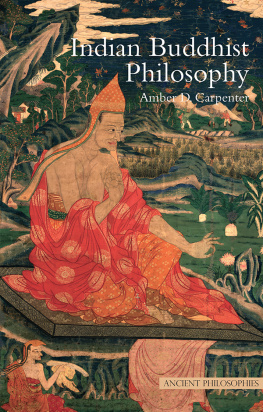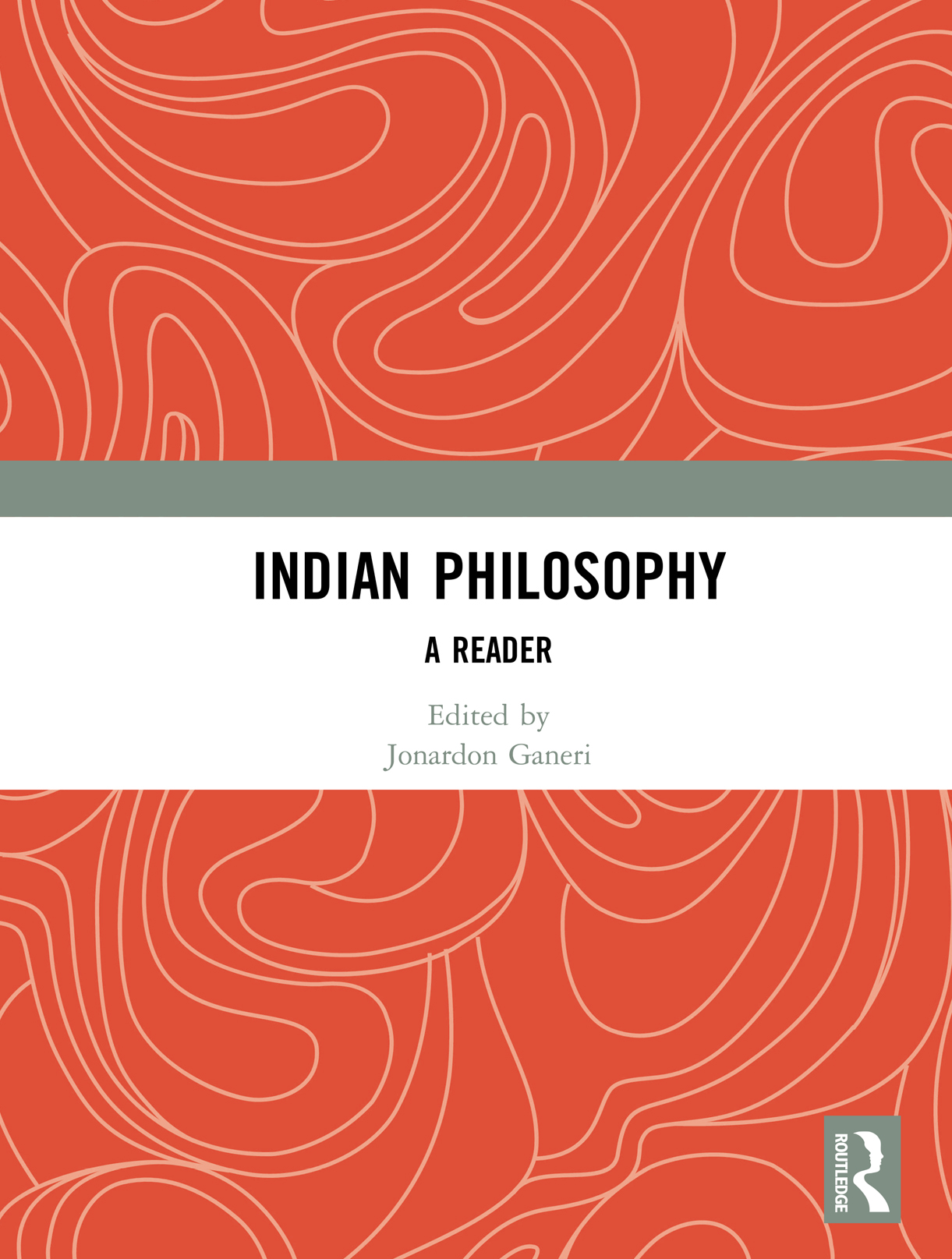
Indian Philosophy
The selection of essays in this volume aims to present Indian philosophy as an autonomous intellectual tradition, with its own internal dynamics, rhythms, techniques, problematics and approaches, and to show how the richness of this tradition has a vital role in a newly emerging global and international discipline of philosophy, one in which a diversity of traditions exchange ideas and grow through their interaction with one another.
This new volume is an abridgement of the four-volume set, Indian Philosophy, published by Routledge in 2016. The selection of chapters was made in collaboration with the editors at Routledge. The purpose of this volume is to reintroduce the heritage of Indian Philosophy to a contemporary readership by acquainting the reader with some of the core themes of Indian philosophy, such as the concept of philosophy, philosophy as a search for the self, Buddhist philosophy of mind, metaphysics, epistemology, language and logic.
Jonardon Ganeri is a philosopher, specializing in philosophy of mind and in South Asian and Buddhist philosophical traditions.
First published 2020
by Routledge
2 Park Square, Milton Park, Abingdon, Oxon OX14 4RN
and by Routledge
52 Vanderbilt Avenue, New York, NY 10017
Routledge is an imprint of the Taylor & Francis Group, an informa business
2020 selection and editorial matter, Jonardon Ganeri; individual chapters, the contributors
The right of Jonardon Ganeri to be identified as the author of the editorial material, and of the authors for their individual chapters, has been asserted in accordance with sections 77 and 78 of the Copyright, Designs and Patents Act 1988.
All rights reserved. No part of this book may be reprinted or reproduced or utilised in any form or by any electronic, mechanical, or other means, now known or hereafter invented, including photocopying and recording, or in any information storage or retrieval system, without permission in writing from the publishers.
Trademark notice: Product or corporate names may be trademarks or registered trademarks, and are used only for identification and explanation without intent to infringe.
British Library Cataloguing-in-Publication Data
A catalogue record for this book is available from the British Library
Library of Congress Cataloging-in-Publication Data
A catalog record has been requested for this book
ISBN: 978-0-367-14789-1 (hbk)
ISBN: 978-0-367-81651-3 (ebk)
Typeset in Bembo
by codeMantra
The publishers would like to thank the following for permission to reprint their material:
Johns Hopkins University Press for permission to reprint Jonardon Ganeri, Intellectual India: Reason, Identity, Dissent, New Literary History, 40, 2009, 247263.
Columbia University Press for permission to reprint Joel Brereton, The Upanishads, in W. T. de Bary and I. Bloom (eds), Eastern Canons: Approaches to the Asian Classics (New York: Columbia University Press, 1990), pp. 115135.
Oxford University Press for permission to reprint Jonardon Ganeri, Hidden in the Cave: The Upaniadic Self, in The Concealed Art of the Soul (Oxford: Oxford University Press, 2007), pp. 1338.
Disclaimer
The publishers have made every effort to contact authors/copyright holders of works reprinted in Indian Philosophy: A Reader. This has not been possible in every case, however, and we would welcome correspondence from those individuals/companies whom we have been unable to trace.
Jonardon Ganeri
I
The selection of essays in this volume aims to present Indian philosophy as an autonomous intellectual tradition, with its own internal dynamics, rhythms, techniques, problematics and approaches, and to show how the resources of this tradition have a vital role in a newly emerging global and international discipline of philosophy, one in which a diversity of traditions exchange ideas and evolve through their interaction with one another.
Indian philosophy is the designation for a vast and still vastly under-researched body of inquiry into the most fundamental topics ever to engage the human mind. Reflecting Indias north-western borders with the Arabic and Persianate worlds, its north-eastern boundaries with Tibet, Nepal, Ladakh and China, as well as the southern and eastern shores that afford maritime links with the lands of Theravda Buddhism, Indian philosophy has been written in many languages, including Pali, Prakrit, Sanskrit, Malayalam, Urdu, Gujarati, Tamil, Telugu, Bengali, Marathi, Persian, Kannada, Punjabi, Hindi, Tibetan, Arabic and Assamese. From the time of the British colonial occupation, it has also been written in English. It spans philosophy of law, logic, politics, environment and society, but is most strongly associated with wide-ranging discussions in the philosophy of mind and language, epistemology and metaphysics (how we know and what is there to be known), ethics, metaethics and aesthetics, and metaphilosophy. The reach of Indian ideas has been vast, both historically and geographically, and it has been and continues to be a major influence in world philosophy. In the breadth as well as the depth of its philosophical investigation, in the sheer bulk of surviving texts and in the diffusion of its ideas, the philosophical heritage of India easily stands comparison with that of China, Greece, the Latin West or the Islamic world.
It is striking how twentieth-century Indian thinkers, including Gandhi, Nehru, Ambedkar and Tagore, and philosophers like Krishnachandra Bhattacharyya and Anukulchandra Mukerji, who formulated the philosophical grounds of an intellectual decolonization, drew inspiration from the rich heritage of philosophy in India. Moreover, as the discipline of academic philosophy begins to address its legacy of exclusion and to evolve into a genuinely diverse and pluralistic field, Indias past represents an unquantifiably precious part of the human intellectual biosphere. For those who are interested in the way in which culture influences structures of thought, for those who want to study alternative histories of ideas, and for those who are merely curious to know what some of the worlds greatest thinkers have thought about some of the most intractable and central philosophical puzzles about human existence and experience, Indian philosophy is a domain of unparalleled richness and importance. Meanwhile, for those who draw upon Indias intellectual past to give sustenance to contemporary programmes of social and political reform, it is essential that the whole of this past, the fullness of its vast diversity and richness, is available and acknowledged. And in its potential for cross-fertilization with ideas from other philosophical cultures Greek, Chinese, European, African, Arabic and Anglophone Indian philosophy has a richness that any creative thinker can and should draw upon.
II
This volume is an abridgement of the four-volume set Indian Philosophy (2016). The purpose of that set was to provide a one-stop shop of secondary literature in Indian philosophy, a resource that any instructor or lecturer could use in offering a module on Indian philosophy within a philosophy curriculum. This new, abbreviated, edition aims to acquaint the reader with some of the core concepts of Indian philosophy.
introduce readers to Indian epistemology, especially the Nyya theory of perception as a source of knowledge.
The final section of the book is devoted to issues in philosophy of language and philosophical logic. do the same with respect to Indian theories of argumentation.
Next page

